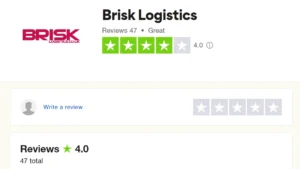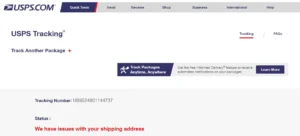Incident Response Facebook – Are you aware of the dangers lurking on Facebook? Learn how to protect yourself from the Incident Response Facebook Scam, a deceptive scheme that targets unsuspecting users.
Discover the inner workings of the Fake Facebook Page Scam and arm yourself with knowledge to identify warning signs. If you’ve fallen victim to this scam, don’t fret – we’ve got you covered with steps to take for recovery.
Stay one step ahead and keep your personal information safe.
Table of Contents
Anatomy of the Incident Response Facebook Scam
You need to be aware of the various elements involved in the anatomy of the Incident Response Facebook Scam.
This scam typically starts with a fake Facebook page that impersonates a trusted organization or individual involved in incident response. These scammers are skilled at creating convincing replicas, using the same logos, images, and even similar domain names.
Once you interact with the page, they might ask you to provide personal information or click on links leading to malicious websites. These websites could contain malware that infects your device or phishing forms designed to steal your login credentials.
The scammers may also request payment for services or products that they claim will help you with incident response. It’s crucial to be cautious and skeptical when encountering any suspicious Facebook pages related to incident response.
How the Fake Facebook Page Scam Operates
The scam operates by creating a fake Facebook page that impersonates a trusted organization or individual involved in incident response. These scammers carefully design the page to mimic the genuine page, using logos, images, and content that closely resemble the original. They may even include contact information and links to further deceive unsuspecting users.
Once the fake page is set up, scammers use various tactics to lure victims. They may post urgent messages, claiming to provide important updates or assistance related to a recent incident. They may also engage in direct messaging, pretending to offer support or guidance.
By exploiting the trust associated with the impersonated organization or individual, scammers try to trick users into revealing personal information, making payments, or clicking on malicious links.
It’s crucial to be cautious and verify the authenticity of any Facebook page before engaging with it.
Warning Signs: Identifying a Fake Facebook Page
To avoid falling victim to a fake Facebook page scam, pay attention to the warning signs and take necessary precautions.
There are several indicators that can help you identify a fake Facebook page.
First, check the page’s URL. If the URL doesn’t match the official Facebook domain or contains random characters, it’s likely a fake page.
Second, examine the page’s content. If you notice poor grammar, spelling mistakes, or low-quality images, it may be a sign of a fake page.
Third, look for engagement on the page. If the page has a low number of likes, comments, and shares, it could be an indication of a fake page with a limited following.
Lastly, be cautious of pages that require personal information or financial transactions. Always verify the legitimacy of a Facebook page before interacting with it.
Steps to Take if You’ve Fallen Victim to the Scam
If you’ve fallen victim to the scam, it’s important to immediately report the fake Facebook page to the platform’s support team. By reporting the fake page, you aren’t only protecting yourself, but also helping to prevent others from becoming victims as well.
To report the page, go to the fake profile, click on the three dots (…) in the top right corner, and select ‘Report Page.’ From there, choose the option that best describes the issue, such as ‘Impersonation’ or ‘Scam.’ Provide as much detail as possible about the scam and any interactions you’d with the account.
Facebook will then investigate the report and take appropriate action to remove the fake page and prevent further harm. Remember, reporting the scam is crucial in the fight against online fraud.
Protecting Yourself From the Incident Response Facebook Scam
By being vigilant and following these tips, you can protect yourself from falling victim to the Incident Response Facebook Scam.
Firstly, it’s important to always verify the authenticity of any Facebook page or account claiming to be from a reputable organization, such as a government agency or a company. Double-check the official website or contact the organization directly to confirm the legitimacy of the page before engaging with it.
Additionally, be cautious of unsolicited messages or friend requests from unknown individuals, especially if they claim to have information or solutions related to the incident. Avoid clicking on suspicious links or providing personal information to anyone you don’t trust.
Lastly, keep your social media privacy settings up to date and regularly review the information you share to minimize the risk of falling for scams.
Frequently Asked Questions
How Many People Have Fallen Victim to the Incident Response Facebook Scam?
You may be wondering how many people have fallen victim to the incident response Facebook scam.
It’s important to be cautious online and protect your personal information to avoid becoming a victim yourself.
Are There Any Legal Consequences for the Perpetrators of the Fake Facebook Page Scam?
Yes, there can be legal consequences for the perpetrators of the fake Facebook page scam.
They may face charges such as fraud or identity theft, which can result in fines or imprisonment.
Can the Warning Signs of a Fake Facebook Page Be Easily Overlooked?
Yes, the warning signs of a fake Facebook page can easily be overlooked. You mightn’t notice subtle differences in the page design or suspicious requests for personal information.
Stay vigilant and report any suspicious activity.
What Are the Most Common Ways That People Unknowingly Become Victims of the Incident Response Facebook Scam?
The most common ways you unknowingly become a victim of the incident response Facebook scam include:
- Clicking on malicious links.
- Providing personal information to fake accounts.
- Falling for emotional manipulation tactics.
Be cautious!
Are There Any Additional Measures One Can Take to Protect Themselves From This Specific Scam?
There are additional measures you can take to protect yourself from this specific scam.
Be cautious of suspicious links or requests for personal information.
Use strong passwords and enable two-factor authentication.
Conclusion – Incident Response Facebook
In conclusion, it’s crucial to stay vigilant and be cautious when using Facebook to avoid falling victim to the Incident Response Facebook Scam.
By familiarizing yourself with the warning signs of a fake page and taking immediate action if you have been scammed, you can protect yourself and prevent further harm.
Remember to always verify the authenticity of any Facebook page before sharing personal information or engaging with suspicious content.
Also Read
Interquest Group Recruitment Scam – Don’t Fall Victim
Bycoinx Scam or Legit? Don’t Fall Victim to Bycoinx.Com
MM Chrono Reviews – Is MM Chrono Legit or a Scam?
Also Read
Fpc Technology Group Scam – Discover the shocking truth
Goldbeck Recruiting Text Message Scam Exposed
Espacexio Scam or Legit? – Don’t be fooled by Espacexio.Com
Also Read
Enlyft Scam or Legit? Don’t Fall Victim to Enlyft
Corrib Capital Management Scam Exposed – Don’t Fall Victim
Cossette Advertising Media Scam – Don’t Fall for This
Also Read
Cangovref Scam or Legit? – Cangovref Review
Tarsier Pharma Scam – Job Seekers Targeted in a Cunning Phishing Scam


















































